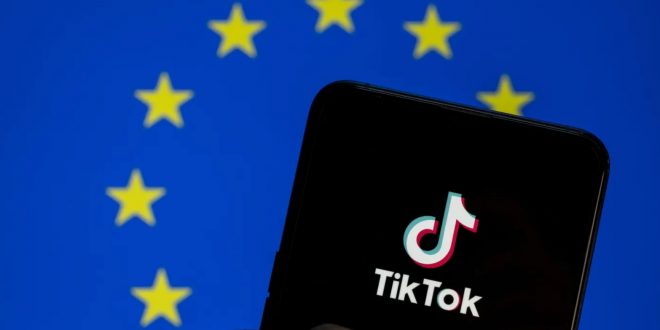The EU has identified six tech giants whose market power it hopes to reduce by applying proactive, pro-competition rules on how they can operate “core platform services”. Alphabet, Amazon, Apple, ByteDance, Meta, and Microsoft are the “gatekeepers”.
The Digital Markets Act has designated 22 core platform services operated by the six gatekeepers, according to the Commission.
The full breakdown: Four social networks (TikTok, Facebook, Instagram, LinkedIn); six “intermediation” services (Google Maps, Google Play, Google Shopping, Amazon Marketplace, iOS App Store, Meta Marketplace); three ADS (Google, Amazon, Meta); two browsers (Chrome, Safari); three operating systems (Google Android, iOS, Windows PC OS); two N-IICS (WhatsApp, Facebook Messenger); on
The DMA takes a proactive approach to competition concern once market power is reached, including giants with 45 million+ active local users. A turnover of €7.5BN+ in the last three financial years and a market capitalization of €75BN are other gatekeeper criteria, but the Commission has some discretion to target platforms that are expected to become “entrenched and durable” in the “near future”.
The regulation took effect in May after EU lawmakers finalized the details earlier this year. That agreement followed lengthy negotiations between the European Parliament and Council on the Commission’s late 2020 digital competition reform proposal.
Alphabet/Google, Apple, Amazon, ByeDance/TikTok, Meta/Facebook, Microsoft, and Samsung expected to be subject to the regime. ByteDance, TikTok’s parent company, is the only non-US tech giant on today’s list. Samsung isn’t.
Gmail and Outlook.com, two other surprising omissions, are not core platform services. Not having webmail from the start is notable. There are no cloud storage platforms either.
The EU wrote that Alphabet, Microsoft, and Samsung provided sufficiently justified arguments that Gmail, Outlook.com, and Samsung Internet Browser do not qualify as gateways for the respective core platform services, despite meeting the DMA thresholds. Thus, the Commission did not designate Gmail, Outlook.com, or Samsung Internet Browser core platform services. It follows that Samsung is not a gatekeeper for any core platform service.”
In core platform services, the DMA prohibits self-preferencing or gatekeepers from forcing business users to use their own services and gatekeeping app stores from preventing rival stores from being installed. Gatekeepers must share platform usage data with business users and cannot prevent them from promoting competing services.
There are also data portability and service interoperability requirements, including messaging giant interoperability and OS, browser, search engine, and virtual assistant choice screen obligations. Gatekeepers cannot track and profile users for ad targeting without consent, stop users from uninstalling gatekeeper preloads, and apply FRAND terms for general access (and avoid discriminatory T&Cs) for fair dealing with business users.
In a speech at a digital conference in Estonia yesterday, EU internal market commissioner Thierry Breton summarized the regulation’s goals. We know that some tech giants have used their market power to give their products and services an unfair advantage and prevent competitors from doing business and creating value and jobs. These practices distort competition, undermine consumer choice, and limit SMEs’ Web 4.0 and virtual world innovation potential, he said.
It was time for Europe to set its rules of the game upfront, providing a clear enforceable legal framework to foster innovation, competitiveness, and Single Market resilience instead of lengthy and ineffective antitrust investigations. The DMA does that.”
The regime can cost up to 10% of global annual turnover or 20% for repeat offenses.
The Commission can also require gatekeepers to sell their businesses or parts of them or ban them from buying “systemic non-compliance” services. The EU’s competition division, which has been investigating Google’s adtech business since 2021, warned this summer that breaking Google up would be the only effective solution if its concerns are confirmed.
 Tech Gadget Central Latest Tech News and Reviews
Tech Gadget Central Latest Tech News and Reviews




